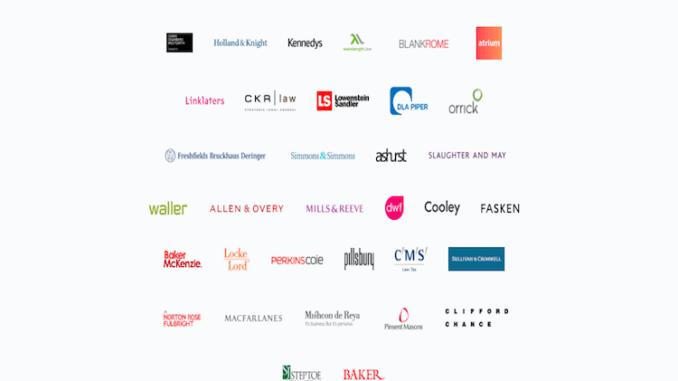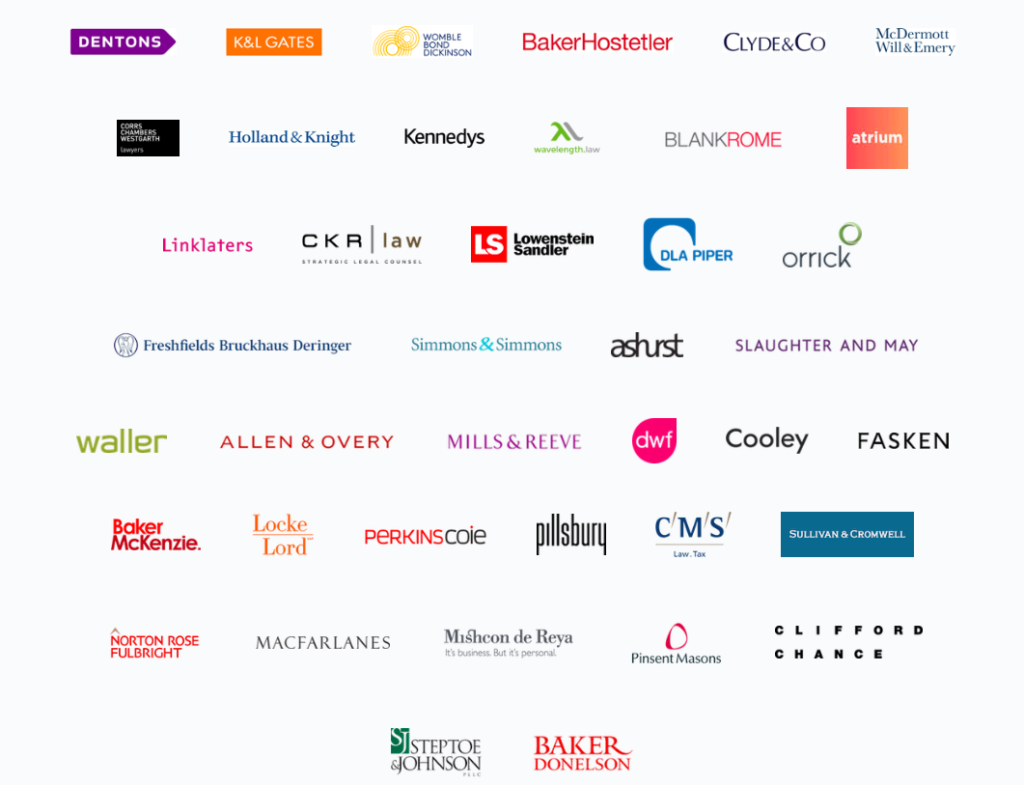
How does the team at Clause, a key driver behind the smart contract consortium The Accord Project, find the hours in the day to get so much done?
Yesterday, Clause made their big public beta reveal (see story), which is a massive milestone in the history of this technology, and now just 24 hours later they’ve announced that Accord has attracted a host of additional leading law firms to be part of the ground-breaking group.
Clifford Chance , Perkins Coie, Steptoe & Johnson, Pinsent Masons, Allens, and Baker Donelson have all joined the rapidly expanding consortium, which already has a host of top firms involved (see pic below of some of the current and new members).
The Accord Project is ‘a community initiative to develop an industry-led specification and open source technology and for smart legal contracts based off industry-driven requirements for transactional legal practice and dispute resolution and counts leading enterprise blockchain platforms such IBM Blockchain, R3’s Corda, Symbiont, and Sweetbridge amongst its partners and collaborators’.
In short it’s the group of lawyers, tech co.s and standard setting organisations that are building the necessary foundations for smart contracts to get real – which arguably they already are now.…they just need to get cracking in terms of making them and getting them out there in the real world.
So, there it is. But does it matter that all these firms have joined?
Yes. Because the big challenge with smart contract tech is that it needs two, (or more like dozens), to tango.
While it makes no difference if firm ABC LLP makes use of an AI review tool all on its own, there is little use for a smart contract system that no one else on the planet wants to be a counter-party with.
Moreover, if smart contract tech is going to take off then you need lots of firms to use the same format – or at least a limited number of formats that everyone is happy to work with – given that these partly computable pieces of digital paper are going to be shared and sent around from place to place, from firm to firm and from lawyer to lawyer.
So, when a batch of leading law firms also join the fray, it matters. Looks like it’s been a big week for the team at Clause and Accord.
And now, for the comments:
Peter Hunn, Founder of the Accord Project said: ‘The latest members to join the Accord Project represent the growing importance of the Project to the legal community. These new memberships are an important addition to other recent developments at the Project, such as the release of our legal domain-specific language and flagship technology partnerships with IBM and R3. We look forward to working together as the industry continues to support the adoption of this technology.’
Commenting on joining the Project, Bas Boris Visser, Global Head of Innovation and Business Change and a Partner in the Finance & Capital Markets practice of Clifford Chance in Amsterdam, said: ‘If we want to help our clients realise the great potential that technology like smart contract brings we need to collectively create a legal framework to make that happen.’
‘For us as a firm this is a key priority so we are thrilled to join the Accord Project with a team of lawyers from our offices in New York and Washington. For us the Accord Project is a great example of true collaboration and a fantastic opportunity for our lawyers to both contribute and learn. A clear win-win,’ he added.
And, Michael Henson, of Perkins Coie’s Blockchain Technology & Digital Currency industry group, said: “We are excited to contribute to the Accord Project and to have an impact in the development of best practices surrounding the implementation of smart legal contracts.’
And to conclude, Orlando Conetta, Head of SmartDelivery at Pinsent Masons, added: ‘The Accord Project is an excellent opportunity for the legal industry to convene on the difficult problems to be solved towards computable contracts. The vision, to couple the legal drafting process with that of the coding cycle, is both bold and timely, and we are delighted to be a part of that journey.’
